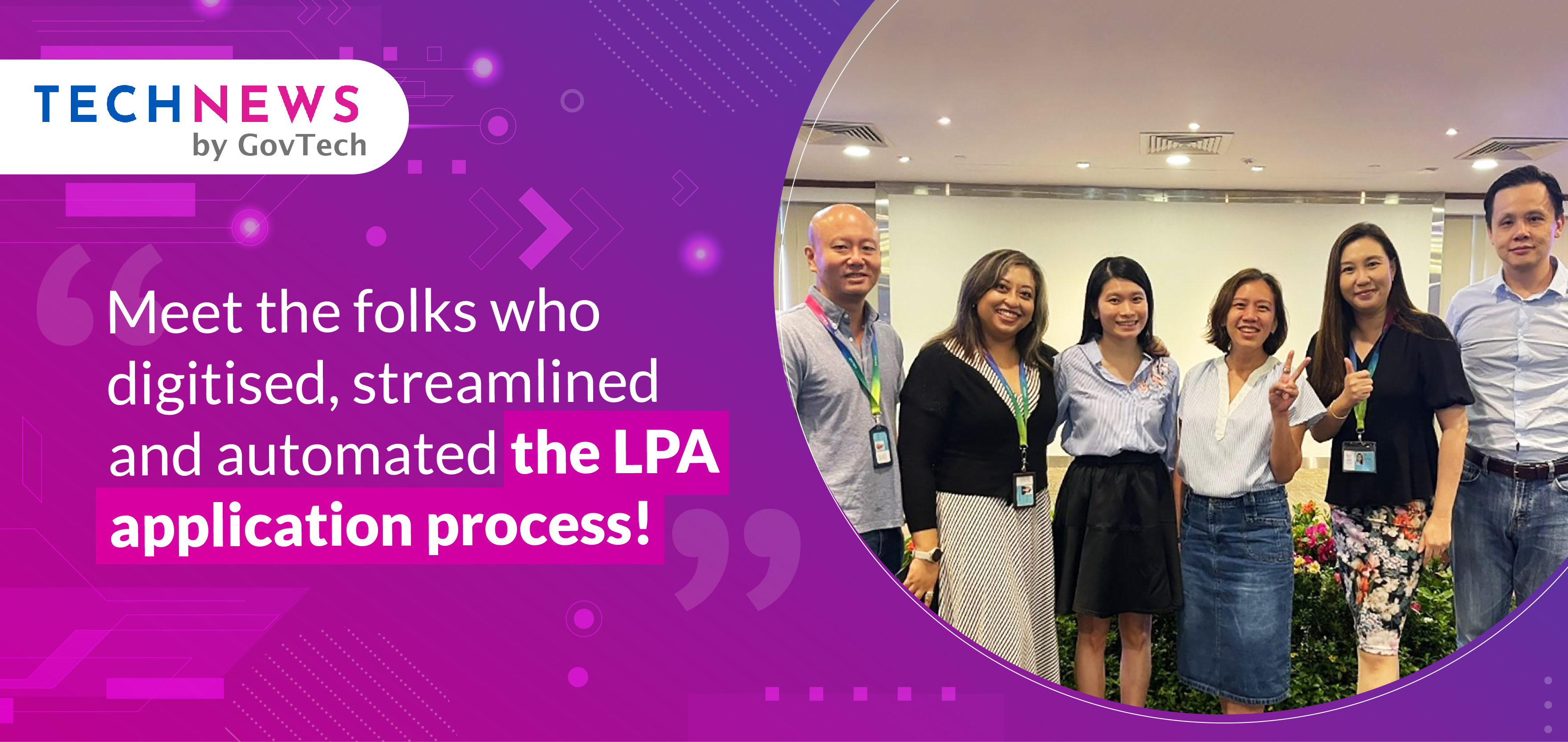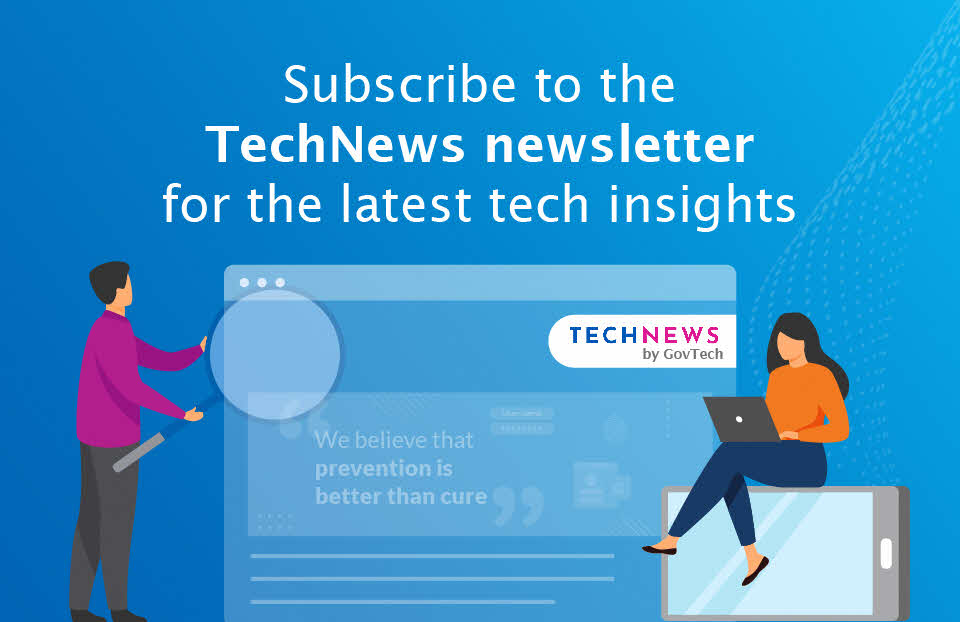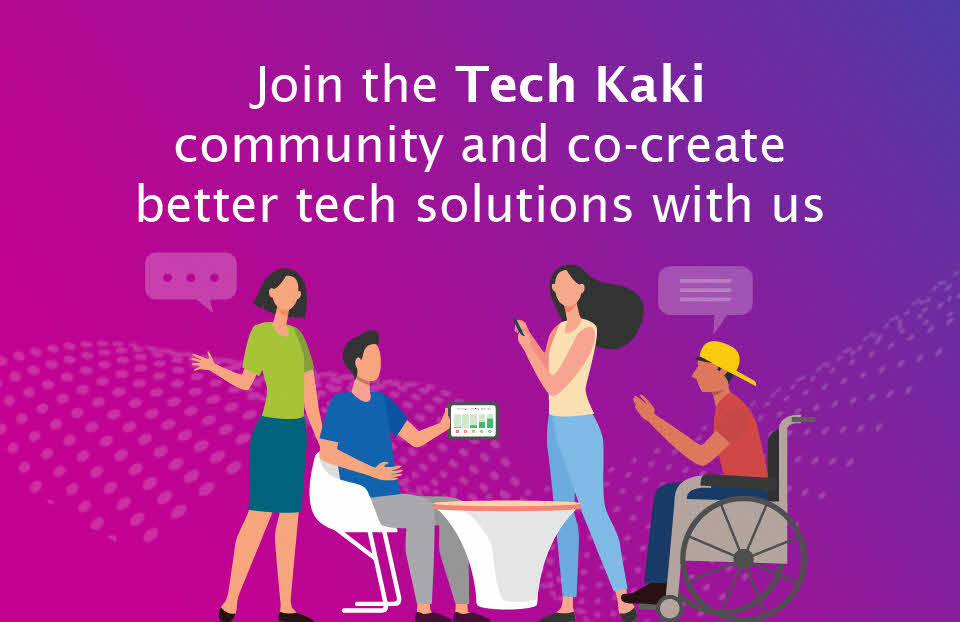LPA application time shortened from 3 weeks to 15 minutes
 Some members of the OPGO MSF and GovTech Services team (left to right: Wilson Onn (GT), Zanariah Binte Sallehuddin (GT), Lynna Ong (MSF), Jenny Chew (MSF), Caroline Tan (GT), Chia Kwock Yoong (GT)
Some members of the OPGO MSF and GovTech Services team (left to right: Wilson Onn (GT), Zanariah Binte Sallehuddin (GT), Lynna Ong (MSF), Jenny Chew (MSF), Caroline Tan (GT), Chia Kwock Yoong (GT)
Did you know that should you lose your mental capacity, your next of kin does not automatically have the legal authority to manage your affairs, and that they would have to apply to court to handle your bank accounts and insurance payouts?
Having a Lasting Power of Attorney (LPA) enables you to avoid such a situation, allowing you to appoint one or more persons to act on your behalf should you lose the ability to make your own decisions.
Recognising the importance of the LPA, GovTech’s Services team partnered the Office of the Public Guardian (OPG) under the Ministry of Social and Family Development (MSF) to digitalise, streamline and automate the LPA application process. This not only resulted in reduced turnaround time from 3 weeks to a mere 15 minutes but also greatly enhanced the user experience. Singapore is considered a global forerunner in digitalising LPA applications, providing citizens with a simple and accessible way to do early pre-planning to ensure their wishes are carried out for their well-being.
Ease of Use for Greater Adoption
Since the new portal’s launch in November 2022, more than 57,000 people have submitted their LPA applications online. Web analytics showed that OPGO exceeded the Digital Government Blueprint (DGB) KPI of 75-80% for customer satisfaction, e-payment, digital signature, and pre-fill of government-verified data. Citizens appreciated the intuitive user interface and provided good qualitative feedback for OPGO.
Until the end of March 2026, the $75 application fee for LPA is waived. So there’s no better time to set yours up on OPGO and give yourself the peace of mind that should the unfortunate happen, your loved ones will not have the additional burden of legal processes to take over your affairs.
Service Transformation: From Manual Processing to Digitalisation
Office of the Public Guardian Online (OPGO), a citizen-centric, integrated service delivery platform, was co-created with stakeholders. The team placed great emphasis on ensuring that OPGO’s usability for citizens is concise and intuitive with a web-responsive user interface designed for accessibility and inclusivity.
The team applied design thinking and mapped out external and internal stakeholders’ vision through business process re-engineering (BPR) and user experience (UX) workshops with public consultations to enhance customer experience. BPR workshops were conducted during conceptualisation to re-engineer current OPG business processes. Service journey workshops were subsequently organised with relevant internal stakeholders, and usability test labs were held to validate the service journeys with members of the public.
Pilot testing was conducted from January to March 2022 with 200 testers, including medical professionals, lawyers, and members of the public, most of whom were aged 50 and above. The feedback was used to improve the user experience and a second round of testing with 371 testers was conducted about six months later.
Harnessing Technology
A key factor in streamlining online LPA applications were the amendments made to the Mental Capacity Act and Regulations in 2022. The amendments enabled the making, certification and registration of electronic LPAs and to recognise digital deeds.
Wet ink signatures and seals are now replaced with Secure Electronic Signatures which are made possible with the use of the National Digital Identity platform that verifies the identity of the person signing and the authenticity of the signed document. Sign with Singpass is highly secure and provides a trusted environment, linking the person’s ‘signature’ to their unique national digital identity. Data security measures are in place to protect sensitive data against data loss, theft, unauthorised access or disclosure.
The platform allows citizens to make and certify a Lasting Power of Attorney (LPA), submit a Deputy Report, submit a search request or Certified True Copy (CTC) application, and make online payments. LPAs and deputy reports are managed seamlessly between online transactions made by the public and back office online processing by MSF officers.
The team is working on leveraging artificial intelligence and machine learning (AIML) for document processing to further enhance user experience and reduce processing time. AIML will also be used for predictive analysis so that a larger number of cases can be covered with lesser manpower.
Adaptive to Change
The team adopted agile methodology, leveraged on technology such as low code platform, continuous integration and continuous delivery (CI-CD) practices, automated testing and cloud technology. These enabled the project to adapt to changes rapidly and ensure quality on functionalities, improving OPGO usability before the launch.
So if you are ready to take the first step in your LPA journey, click right here!



